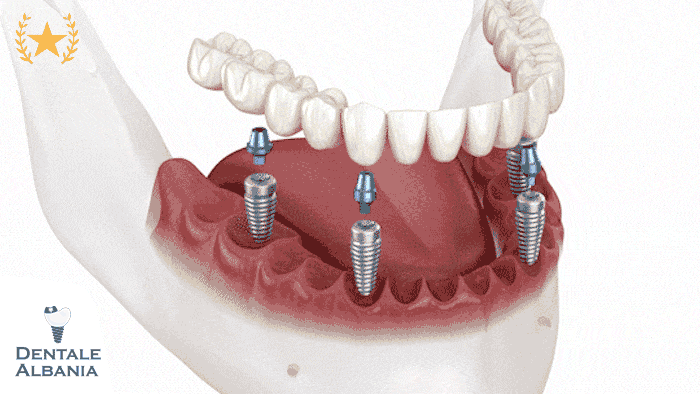What Is Cosmetic Dentistry? And How Can It Transform Your Smile?

Cosmetic dentistry refers to a branch of dental care that focuses on enhancing the appearance of your teeth, gums, and bite, rather than solely addressing functionality or disease. While a general dentist is concerned with preventing and treating oral health issues like cavities or gum disease, a cosmetic dentist is trained to create balance, symmetry, and visual appeal — helping patients achieve the perfect smile they’ve always wanted.
From teeth whitening and composite bonding to veneers and full smile makeovers, cosmetic dentistry offers a wide range of treatments. These are tailored to fix concerns such as discolouration, misalignment, chips, gaps, and even missing teeth. Whether you’re preparing for a special occasion or simply want to boost your confidence, cosmetic and dental services can help you smile with ease.
The primary purpose of dental cosmetic dentistry is aesthetic, but many treatments also offer functional improvements. For example, dental implants not only restore your smile but also preserve bone density and improve chewing. Cosmetic dental surgery like gum contouring or reshaping uneven teeth can enhance both oral hygiene and appearance.
Patients often ask: What is meant by cosmetic dentistry? Simply put, it’s any dental procedure that improves how your smile looks — from minor adjustments to full transformations. This can involve subtle changes in tooth colour, shape, or size, or comprehensive work using dental veneers, clear aligners, or implant-supported bridges.
In recent years, cosmetic dentistry has become increasingly popular in the UK and internationally, thanks to affordable private treatments, modern technology, and flexible payment plans. Practices like Bupa Dental Care and cosmetic dental clinics in Coventry, Leamington Spa, and Birmingham now offer interest-free finance and free consultations to make aesthetic dentistry more accessible.
Whether you’re fixing a chipped front tooth, whitening teeth for a brighter smile, or closing a gap without braces, cosmetic dentistry can be life-changing. And it’s not just about beauty — the emotional and social impact of a confident smile can boost self-esteem, career opportunities, and interpersonal relationships.
What Are the Most Popular Cosmetic Dentistry Procedures?
Cosmetic dentistry offers a wide variety of treatments designed to improve the appearance of your smile, no matter your age or dental history. Whether you’re dealing with stained teeth, chipped enamel, gaps, or crooked alignment, there’s a cosmetic solution that can restore your confidence and transform your look.
Let’s break down the most in-demand cosmetic dental procedures offered at clinics across the UK — including cosmetic dental practices in Coventry, Birmingham, and Leamington Spa:
Teeth Whitening
Teeth whitening is one of the most popular cosmetic dental procedures because it delivers fast, dramatic results with minimal effort. Whether performed in-practice or with home kits, whitening helps remove surface stains caused by coffee, tea, red wine, or smoking.
- Professional whitening treatments are more effective and longer-lasting than over-the-counter solutions.
- Some dental clinics, such as Bhandal Dental Practice, offer both in-chair whitening and custom trays for at-home use.
Dental Veneers
Veneers are ultra-thin, custom-made shells — usually made from porcelain — that are bonded to the front of your teeth. They can completely transform a smile by covering imperfections such as:
- Discolouration
- Chips or cracks
- Uneven spacing or gaps
- Mild misalignment
Veneers are popular because they offer a natural look, are durable (lasting 10–15 years), and require minimal tooth reduction.
Composite Bonding
Composite bonding (or cosmetic bonding) is a cost-effective way to repair chips, close small gaps, or reshape teeth using a tooth-coloured resin. It’s ideal for patients who want quick fixes without undergoing major procedures.
- Completed in one visit
- Non-invasive and pain-free
- Easily repairable and adjustable
- Perfect for those asking: What if I am unhappy with composite bonding?
Invisalign and Cosmetic Braces
Invisalign and other clear aligner systems offer a discreet alternative to traditional braces. They are especially popular among adults and teens who want to straighten their teeth without metal wires.
- Great for correcting overcrowding and bite alignment
- Removable and comfortable
- Available at top clinics like Whitestone Family Dental and Longfellow Road Dental Practice
Dental Crowns and Bridges
Crowns are used to cap and protect damaged teeth, while bridges fill gaps from missing teeth. Though often restorative, they also serve cosmetic purposes by enhancing the overall look of your smile.
- Crowns improve both strength and aesthetics
- Bridges restore symmetry and prevent teeth from shifting
Smile Makeovers
A smile makeover combines several cosmetic treatments into a tailored plan. This could include veneers, bonding, whitening, orthodontics, and even implants — depending on the patient’s needs and goals.
Clinics like BPI Dental in Birmingham specialize in comprehensive makeover plans, guiding patients through every step with digital previews and mock-ups.
What Are the Most Popular Cosmetic Dentistry Procedures in Albania?
Albania has rapidly emerged as one of Europe’s most attractive destinations for affordable, high-quality cosmetic dentistry. Patients from the UK, Germany, Italy, and even the U.S. are increasingly choosing Albanian clinics for procedures that offer excellent outcomes, modern technology, and substantial cost savings. But which treatments are patients actually flying in for? Let’s look at the most popular cosmetic dental procedures in Albania.
1. Dental Implants
Among the most sought-after procedures in Albania, dental implants top the list for patients needing long-term solutions to missing teeth. Albanian clinics provide:
Titanium implants identical to those used in Western Europe
Advanced 3D diagnostics and digital planning
Implants for single teeth, full-mouth restorations, and All-on-4 or All-on-6 systems
At a price range of £400–£800 per implant, compared to £1,500+ in the UK, it’s no surprise that implants are one of Albania’s top cosmetic exports.
2. Porcelain Veneers
Veneers are another widely performed procedure, especially for patients looking to improve tooth colour, shape, or alignment. In Albania:
Porcelain veneers cost between £150–£300 per tooth
Clinics often offer full smile makeover packages with 6, 8, or 10 veneers
The result is a stunning, symmetrical smile with a natural finish
Patients who can’t afford multiple veneers in the UK often get a full set done affordably in Albania.
3. Composite Bonding
This non-invasive, cost-effective treatment is hugely popular among younger patients and those seeking fast fixes:
Used for small chips, cracks, or gaps
Completed in a single visit
Costing only £50–£150 per tooth
Bonding is often included in same-day smile makeovers, making it perfect for short-stay dental trips.
4. Teeth Whitening
Whitening remains a favourite in Albania, especially among tourists combining dental care with vacation time:
Clinics offer laser whitening and custom take-home kits
Average cost: £100–£200
Results are immediate and ideal for events or photoshoots
5. Smile Makeovers
Many patients opt for comprehensive smile makeover packages, combining veneers, bonding, whitening, and implants:
Fully customised
Digital previews and mock-ups
Prices from £1,500 to £5,000, often including consultation, scans, and post-care
6. Orthodontics & Invisalign
Though not as common due to longer treatment times, Invisalign and other clear aligners are still popular among Albanian patients and expats:
More affordable than in the UK
Suitable for mild to moderate misalignments
Are Dental Implants or Veneers Better for Replacing Teeth?
If you’re considering cosmetic dental treatment to restore or enhance your smile, two of the most discussed options are dental implants and veneers. While both improve the appearance of your teeth, they serve very different functions. Understanding their benefits, limitations, and costs will help you make the best choice for your smile goals.
What Are Dental Implants?
Dental implants are artificial tooth roots — usually made of titanium — that are surgically placed into the jawbone to support replacement teeth, such as crowns, bridges, or implant-retained dentures. They are designed to replace missing teeth permanently.
Benefits of Dental Implants:
- Function and feel like natural teeth
- Prevent bone loss and preserve facial structure
- Last 20+ years or even a lifetime with proper care
- Improve both appearance and chewing ability
- Widely considered the best long-term solution for tooth loss
Implants are typically the go-to solution for patients missing one or more teeth and are available across the UK and abroad — including at cosmetic dentists in Coventry, Leamington Spa, and Albania, where they’re often more affordable.
What Are Dental Veneers?
Veneers, on the other hand, are ultra-thin shells of porcelain or composite resin that are bonded to the front surface of existing teeth. They do not replace missing teeth — instead, they are a cosmetic solution for:
- Discoloured or stained teeth
- Minor chips and cracks
- Gaps between teeth
- Mild misalignment
Veneers are commonly used in smile makeovers to create uniform, white, aesthetically pleasing smiles.
Key Differences Between Implants and Veneers:
| Feature | Dental Implants | Veneers |
| Purpose | Replace missing teeth | Cover existing teeth for cosmetic improvement |
| Durability | 20+ years to a lifetime | 10–15 years (porcelain), 5–7 years (composite) |
| Invasiveness | Requires surgery and healing time | Minimally invasive procedure |
| Cost (UK) | £1,500–£2,500+ per implant | £400–£1,000 per tooth |
| Functionality | Restores bite, prevents bone loss | Enhances appearance only |
So, Which One Should You Choose?
- If you’re missing teeth or have severe damage, dental implants are the better choice for restoring function and aesthetics.
- If your teeth are present but not visually appealing due to cosmetic imperfections, veneers can offer a fast, beautiful transformation.
In some cases, both treatments may be used together — for example, implants to replace missing teeth, and veneers for the visible front teeth.
What’s the Lifespan of Cosmetic Dental Treatments Like Veneers?
A common question among patients exploring cosmetic dentistry is: “How long will the results last?” Whether you’re investing in veneers, bonding, whitening, or implants, understanding the lifespan of each treatment is essential for making informed decisions and managing expectations.
Cosmetic treatments are designed not only to enhance the appearance of your smile but to also provide long-term durability—especially when paired with good oral hygiene and regular dental checkups.
How Long Do Dental Veneers Last?
Porcelain veneers, known for their strength and stain resistance, typically last 10 to 15 years or even longer with excellent care. In some cases, they can last up to 20 years.
Composite veneers (or composite bonding), while more affordable, tend to have a shorter lifespan—around 5 to 7 years. They’re more susceptible to chipping, staining, and general wear over time.
Tips to Extend the Lifespan of Your Veneers:
- Avoid using your teeth as tools (e.g. opening packages)
- Refrain from biting nails or chewing on pens
- Minimize consumption of staining agents like red wine, coffee, or tobacco
- Use a mouthguard if you grind your teeth at night
- Schedule regular dental cleanings and exams
Remember: veneers are not reversible. Once a tooth is prepped for a veneer, it will always need some form of restoration in the future.
How Long Does Cosmetic Dentistry Last Overall?
Here’s an overview of how long popular cosmetic dental treatments usually last, and what affects their longevity:
- Teeth Whitening:
- 6 to 24 months, depending on your diet and lifestyle
- Smokers and coffee drinkers may need touch-ups more frequently
- Composite Bonding:
- 5 to 8 years
- May need polishing or minor repairs over time
- Dental Crowns & Bridges:
- 10 to 15 years, often longer with proper care
- Invisalign / Clear Aligners:
- Results are permanent, provided retainers are worn as advised
- Dental Implants:
- 20+ years or potentially a lifetime, depending on bone health and oral hygiene
Maintenance Makes the Difference
Cosmetic dental treatments last significantly longer with:
- Twice-daily brushing and daily flossing
- Use of a soft-bristled toothbrush and non-abrasive toothpaste
- Routine dental visits (every 6 months)
- A healthy, low-sugar diet
Even the most durable materials need care. While cosmetic dentistry offers long-lasting beauty and confidence, proper maintenance is what truly ensures your investment stands the test of time.
How Much Does Cosmetic Dentistry Cost in the UK?

Cosmetic dentistry in the UK offers a wide range of treatments—each with different pricing based on the complexity of the procedure, location of the clinic, and experience of the dentist. While the NHS doesn’t typically cover cosmetic procedures, private clinics offer everything from affordable touch-ups to full smile transformations. Here’s what you need to know if you’re considering enhancing your smile in the UK.
Which Dental Treatment Is the Most Expensive?
Among all cosmetic procedures, dental implants are typically the most expensive. That’s because they involve surgical placement, high-quality materials, and multiple appointments.
- Single dental implant: £1,500 – £2,500+
- Full mouth implants: £10,000 – £25,000+
- All-on-4 implants: £12,000 – £16,000 per arch
Other costly treatments include:
- Porcelain veneers: £400 – £1,000 per tooth
- Smile makeovers (multiple treatments): £3,000 – £20,000+
These high-end options offer excellent long-term value but can be a significant investment upfront.
How Much Is Dental Bonding in the UK?
Composite bonding is one of the most affordable and minimally invasive cosmetic treatments:
- Cost per tooth: £150 – £400
- Ideal for small chips, gaps, or discolouration
- Typically done in one visit with immediate results
Bonding is popular due to its affordability, natural look, and quick turnaround.
How Much Do Veneers Cost in the UK?
Veneers vary in price depending on the material used:
- Porcelain veneers: £500 – £1,000 per tooth
- Long-lasting and stain-resistant
- Composite veneers: £250 – £500 per tooth
- More affordable but less durable
Patients often choose 2 to 8 veneers as part of a full smile makeover, meaning total costs can range between £1,000 and £8,000 or more.
What Is the Cheapest Way to Replace Missing Teeth?
If implants are out of budget, consider more economical alternatives:
- Dentures: £200 – £1,000
- Removable, but functional and aesthetic
- Dental bridges: £250 – £800 per unit
- Fixed replacement for one or more missing teeth
- NHS treatments: Available only if there’s a clinical need, not for cosmetic purposes
While these options may not offer the longevity of implants, they can still provide excellent function and appearance at a lower price.
Is Cosmetic Dentistry Available on the NHS?
Generally, no. The NHS only covers dental procedures that are medically necessary. That means if a treatment improves health (e.g. pain relief, infection, chewing ability), it may be partially or fully funded.
Cosmetic treatments like:
- Teeth whitening
- Veneers for aesthetic reasons
- Composite bonding for appearance
…are usually not available on the NHS, unless a strong case can be made for emotional or psychological impact.
How Much Does Cosmetic Dentistry Cost in Albania?
Albania is becoming one of Europe’s most popular destinations for dental tourism, offering high-quality cosmetic dental treatments at a fraction of UK prices. Whether you’re considering veneers, implants, or full smile makeovers, the cost of cosmetic dentistry in Albania is significantly lower—without compromising on quality.
Why Is Cosmetic Dentistry Cheaper in Albania?
Several key factors explain the price difference between Albania and the UK:
- Lower operational costs – Rent, equipment, and labour are less expensive in Albania.
- High-quality materials – Many clinics use European-certified materials, just like UK clinics.
- Internationally trained dentists – Many Albanian cosmetic dentists have trained in the UK, Germany, or Italy.
- Dental tourism infrastructure – Clinics often provide travel assistance, accommodation help, and consultations in English.
This makes Albania an attractive choice for patients seeking both affordability and safety.
Average Costs of Cosmetic Treatments in Albania
Here’s what you can typically expect to pay in private dental clinics in Albania:
- Teeth Whitening: £100 – £200
- Composite Bonding: £50 – £150 per tooth
- Porcelain Veneers: £150 – £300 per tooth
- Dental Implants: £400 – £800 per implant
- Smile Makeover (full mouth): £1,500 – £5,000+
- All-on-4 Implants: £4,000 – £7,000 per arch
Most treatment plans include consultations, 3D scans, and follow-up care. Some clinics even bundle these services into convenient packages.
Is It Worth Travelling to Albania for Cosmetic Dentistry?
Yes — and here’s why:
- Massive cost savings – Save up to 70% compared to UK prices.
- High patient satisfaction – Many clinics feature 5-star reviews from international patients.
- Modern facilities – Dental practices in cities like Tirana, Durrës, and Sarandë boast cutting-edge technology.
- Holiday + dental care – Patients often combine treatment with a beach holiday on the Albanian Riviera.
✅ Pro tip: Always research the clinic beforehand—check certifications, read patient testimonials, and ensure English-speaking staff are available.
What Should I Look for in a Cosmetic Dentist?

Choosing the right cosmetic dentist is crucial to achieving the smile you’ve always dreamed of. Not all dentists have the same expertise, artistic eye, or technology—so selecting a professional with the right background and experience can make all the difference in the outcome.
What Makes a Good Cosmetic Dentist?
Here are the key qualities to look for when researching a cosmetic dental clinic or professional:
- Specialised Training: Look for dentists who have completed advanced training in cosmetic or aesthetic dentistry—especially those certified by bodies like the AACD (American Academy of Cosmetic Dentistry) or similar European organisations.
- Before & After Portfolio: A reputable cosmetic dentist will have a gallery of real patient transformations to demonstrate the results you can expect.
- Modern Technology: Practices that use digital smile design, 3D imaging, and intraoral scanners can offer more precise and predictable outcomes.
- Patient Reviews & Testimonials: Positive reviews are a strong indicator of a dentist’s communication, results, and professionalism. Look for consistent high ratings on Google or Trustpilot.
- Comprehensive Consultations: A good cosmetic dentist will take the time to understand your goals and concerns, offering a bespoke treatment plan rather than a one-size-fits-all solution.
What Is the Difference Between a Cosmetic Dentist and a Regular Dentist?
This is a common question—and an important one. Both are licensed dental professionals, but their focus differs:
- General Dentists handle routine oral health care—fillings, extractions, gum disease treatment, cleanings, and oral exams.
- Cosmetic Dentists specialise in improving the appearance of your teeth, gums, and overall smile using techniques like veneers, teeth whitening, bonding, and Invisalign.
Many general dentists offer cosmetic procedures, but they may lack the in-depth training and artistic touch of someone who focuses exclusively on cosmetic smile design.
Can a General Dentist Offer Cosmetic Treatments?
Yes—but with limitations.
- Many general dentists provide basic cosmetic services, such as teeth whitening or minor bonding.
- For complex or full-mouth restorations, it’s best to consult a cosmetic specialist who understands both aesthetics and function.
- For the best results, look for a dentist who regularly performs the treatment you’re considering.
What’s the Difference Between a Cosmetic Dentist and a General Dentist?
While both cosmetic and general dentists are trained to care for your oral health, their focus, expertise, and daily practice can differ significantly. Understanding these distinctions can help you decide who to turn to—depending on whether your goal is function, aesthetics, or both.
What Does a General Dentist Do?
A general dentist is your go-to provider for:
- Preventive care – regular checkups, cleanings, and X-rays
- Restorative procedures – fillings, crowns, bridges, root canals
- Oral health treatments – gum disease therapy, extractions
- Routine diagnostics – identifying cavities, infections, or bite issues
Their main goal is to maintain the health and functionality of your teeth, gums, and jaw. General dentists are also the first professionals to catch issues early—before they require more advanced intervention.
What Does a Cosmetic Dentist Do?
A cosmetic dentist, on the other hand, focuses on the appearance of your smile. Their services include:
- Teeth whitening
- Porcelain veneers
- Composite bonding
- Smile makeovers
- Gum contouring
- Invisalign or clear aligners
They often combine artistic skill with dental science to create harmonious, natural-looking results. Cosmetic dentists also consider facial features, symmetry, and color balance in their smile designs.
Many cosmetic dentists also have advanced training in aesthetic planning, materials science, and digital smile design—which goes beyond traditional dentistry.
Can a General Dentist Offer Cosmetic Treatments?
Yes—but it depends.
- General dentists can legally perform cosmetic procedures like whitening or bonding.
- However, they may lack the specialised training, technology, or aesthetic sensibility that comes from focusing specifically on cosmetic work.
- For basic procedures, a general dentist may be suitable—but for smile makeovers, veneers, or complex alignment cases, a dedicated cosmetic dental clinic is usually recommended.
Choosing the right provider depends on your goals. If you’re focused on oral health maintenance, a general dentist is perfect. If your priority is an aesthetic transformation, it’s worth seeking out a dentist with cosmetic expertise.
Frequently Asked Questions About Cosmetic Dentistry

Cosmetic dentistry brings with it a lot of curiosity — from treatment longevity to costs and best options. Here, we tackle some of the most frequently asked questions to help you make informed decisions about your smile.
How Long Does Cosmetic Dentistry Last?
One of the biggest questions patients have is: “Will my new smile last?” The answer depends on which treatments you choose, how well you maintain your oral health, and your lifestyle habits.
Here’s a general breakdown:
- Teeth Whitening: Results can last 6 months to 2 years, depending on factors like coffee, wine, smoking, or acidic foods. Regular touch-ups and good oral hygiene can extend results.
- Composite Bonding: Typically lasts 5–8 years. While affordable and minimally invasive, bonding can be prone to staining or chipping, especially without proper care.
- Porcelain Veneers: Known for their durability, veneers usually last 10 to 15 years, and sometimes longer. Good brushing habits and avoiding hard foods will preserve them longer.
- Dental Implants: With proper care, implants can last 20+ years or even a lifetime. Their longevity also depends on the health of your jawbone and gums.
- Invisalign & Braces: The alignment results are permanent—as long as you wear your retainers as advised. Without retention, teeth can shift over time.
- Crowns & Bridges: Typically last 10 to 15 years, but some can last longer if maintained well and not exposed to excessive biting pressure.
Pro tip: No matter the treatment, the best way to prolong your results is through excellent oral hygiene, regular dental checkups, and avoiding habits like nail biting, smoking, or teeth grinding.
Cosmetic dentistry is an investment in your confidence, and with the right care, it can deliver long-lasting, beautiful results.
What Is the Most Popular Cosmetic Dental Procedure?
When it comes to enhancing smiles, one treatment consistently tops the list: teeth whitening.
1. Teeth Whitening
Teeth whitening is by far the most requested cosmetic dental treatment—and for good reason:
- It’s quick, non-invasive, and affordable
- Provides immediate, visible results
- Can be done in-office or at home with professional-grade kits
People often choose whitening for special occasions like weddings, interviews, or photoshoots. But even outside of events, it’s a go-to treatment for anyone looking to brighten their smile and boost their confidence.
2. Other Popular Cosmetic Procedures
While whitening leads the pack, several other treatments are rapidly growing in popularity:
- Veneers
Porcelain or composite shells that cover the front of the teeth. Ideal for:- Discolouration
- Gaps
- Chips or cracks
- Uneven or misshaped teeth
- Composite Bonding
A simple, cost-effective procedure using tooth-colored resin to:- Fix small gaps or cracks
- Reshape teeth
- Repair chips
- Invisalign or Clear Aligners
Favoured by adults and teens alike:- Straightens teeth without metal brackets
- Nearly invisible
- Comfortable and removable
- Dental Implants
For replacing missing teeth with a permanent, natural-looking solution:- Prevents bone loss
- Long-lasting and stable
- Smile Makeover
A full transformation that combines treatments like veneers, bonding, whitening, and orthodontics to create a fully rejuvenated smile.
Each of these procedures has its own benefits depending on your needs. But if you’re just getting started with cosmetic dentistry, teeth whitening or bonding are often great entry points.









